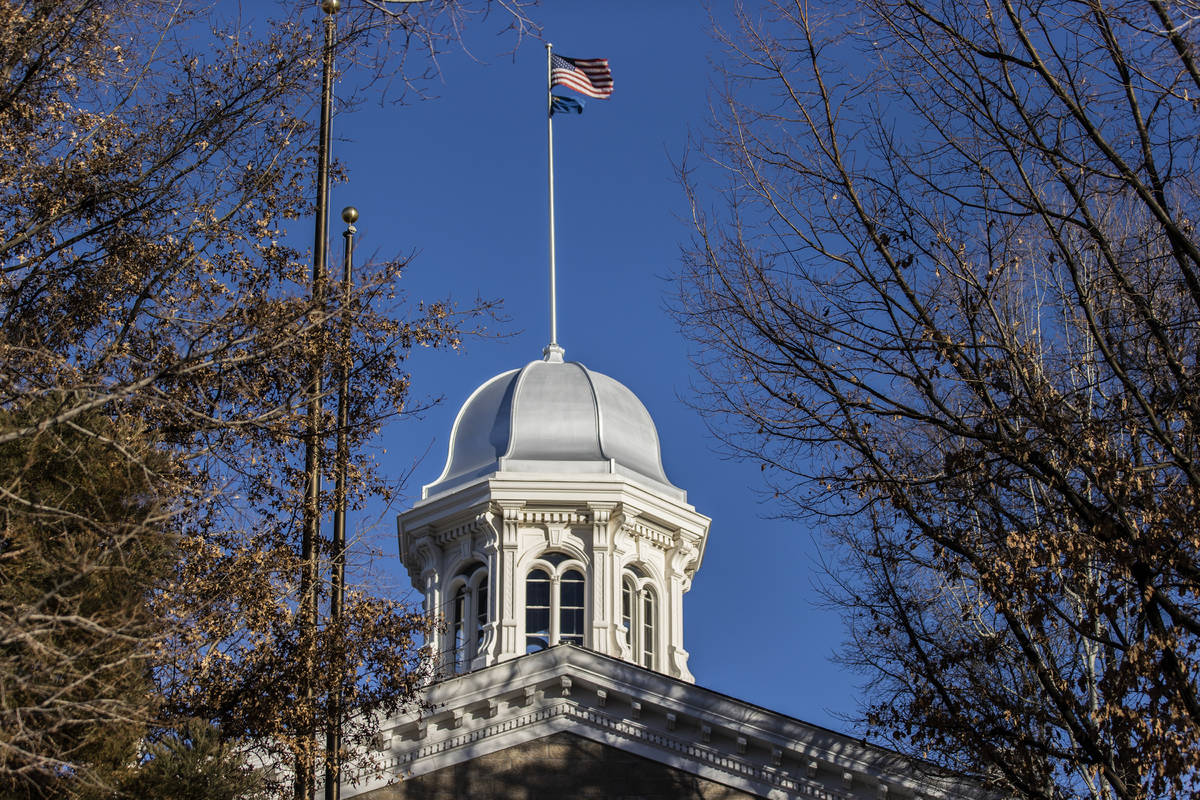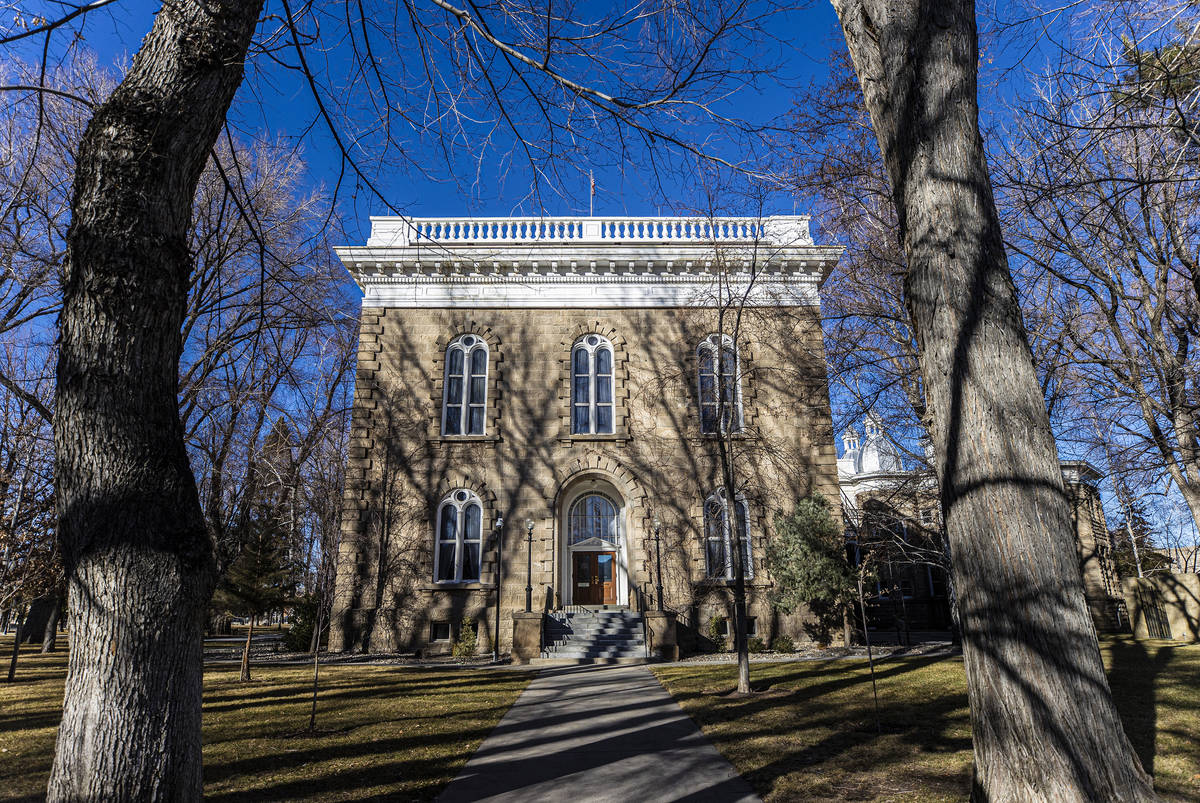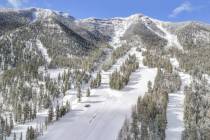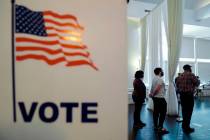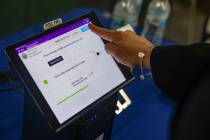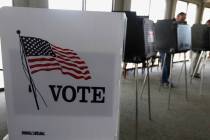Nevada bill would allow college athletes to profit
CARSON CITY — As lawmakers moved to introduce bills before a looming deadline Monday, the leader of the Assembly Democrats on Friday unveiled a proposal that could see college athletes in Nevada earning pay and signing endorsement deals.
With the introduction of Assembly Bill 254, Nevada is jumping into the discussion on compensating college athletes. California and Florida have already passed similar laws, and several other states across the country are considering similar legislation.
AB 254 would allow student athletes to sign endorsement deals, be compensated for the use of their name, likeness or image and contract with an agent.
The bill is sponsored by Assembly Speaker Jason Frierson, D-Las Vegas, who played running back for the Nevada Wolf Pack’s 1990 team, which played for the 1-AA national championship.
The NCAA, long opposed to paying college athletes, came out last April in favor of allowing players to be compensated.
Frierson introduced a second bill Friday, Assembly Bill 255, that would shake up the makeup of the school boards in Nevada’s two most populous counties.
AB 255 would shift the school boards in Clark and Washoe counties away from the fully elected model currently in place to a hybrid system in which three of the seven members would be appointed.
Four members would remain elected, one would be appointed by the county commissions, and the two most populated cities within a county would each appoint one.
Frierson’s bill is similar to a proposal introduced earlier this session by Sen. Ben Kieckhefer, R-Reno. Kieckhefer’s bill, Senate Bill 111, instead calls for three of the seven members to be elected. The three largest cities in the respective counties would each appoint one member, while the county commission would have one appointment.
Kieckhefer sponsored previous versions of his bill, in 2017 and 2019, but with little progress.
But with new legislation coming from the top Assembly Democrat in the Democratic-controlled Legislature, it appears that there is new appetite for the concept this session.
Week 6 of the Legislature’s 2021 session saw lawmakers introduce or hold hearings on the following bills:
— Senate Bill 134, heard in committee Monday, would reverse how people register to be organ donors when they file for a driver’s license or ID card. Applicants would be organ donors by default, with those not wanting to be donors required to opt-out instead of the other way around. The bill got an uneven reception, and amendments are expected.
— On Tuesday, lawmakers in committee heard Assembly Bill 88, requiring schools to drop racially discriminatory mascots and logos.
— A Wednesday hearing on paying prison inmates minimum wage for work programs drew unanimous support in committee Wednesday, surprising its sponsor, who expected more pushback on Senate Bill 140.
— Assembly Bill 42, also heard in committee Wednesday, would bring state municipal courts in compliance with a 2019 state Supreme Court ruling that misdemeanor domestic violence cases warrant a jury trial because defendants face the loss of the right to possess firearms.
— Assembly Bill 186, which would bar police departments from using quotas for traffic citations or arrests and prevent them from measuring citation or arrest numbers when evaluating officer performance. Police representatives said they did not employ quotas and did not oppose the main intent of the bill.
A GOP-backed voting bill, Senate Bill 225, emerged in the Senate on Thursday. Following a Republican script in use nationally, it proposed tighter rules on voter ID for in-person voting and changes to early and absentee voting procedures.
Also Thursday, lawmakers in committee heard Assembly Bill 121, which would allow Nevadans with disabilities to register to vote, apply for and cast absentee ballots with the same electronic system used by military and overseas voters.
Another bill introduced Thursday, Senate Bill 212, would change the rules on when and how a police officer can employ deadly force.
Here’s a glance at bills scheduled for hearings next week:
Monday
The Assembly Judiciary Committee hears Assembly Bill 241, which would allow prisoners to earn additional credits to reduce their sentences during declared states of emergency, such as the ongoing COVID-19 crisis, receiving five days for each month served during the emergency to a maximum of 60 days.
The Senate Education Committee will hear Senate Bill 102, which would require entering kindergartners, first and second graders to reach the ages of 5, 6, and 7 years old, respectively, by Aug. 1 of the school year, instead of the current date of Sept. 30.
The Senate Judiciary Committee hears Senate Bill 166, which would allow for additional penalties to be assessed in cases involving felony hate crimes even if the perpetrator and victim are of the same race, color, sexual orientation, gender identity or other defining characteristic.
The Senate Growth and Infrastructure committee hears Senate Bill 170, which makes changes to the registration and operation of off-highway vehicles, including a requirement that children under 16 wear helmets.
The Assembly Natural Resources committee takes up Assembly Bill 171, which would protect Rocky Mountain juniper trees, or “swamp cedars,” within the 14,000-acre Bahsahwahbee Traditional Cultural Property in White Pine County.
Wednesday
The Senate Judiciary committee hears Senate Bill 165, which would create a commission to regulate esports.
Senate Bill 183, a transportation bill before the Senate Growth and Infrastructure committee, would allow motorists to drive 5 mph faster in some HOV lanes and limit the use of bicycles, electric bikes or electric scooters on certain highways.
Thursday
The Senate Judiciary committee hears Senate Bill 144, which would require homeowners associations and other common interest communities to maintain a secure website for residents to make payments, receive electronic notifications and access information and limits the ability of such communities to foreclose on certain liens imposed for nonpayment of assessments and charges.
Contact Capital Bureau Chief Colton Lochhead at clochhead@reviewjournal.com. Follow @ColtonLochhead on Twitter. Contact Capital Bureau reporter Bill Dentzer at bdentzer@reviewjournal.com. Follow @DentzerNews on Twitter.



